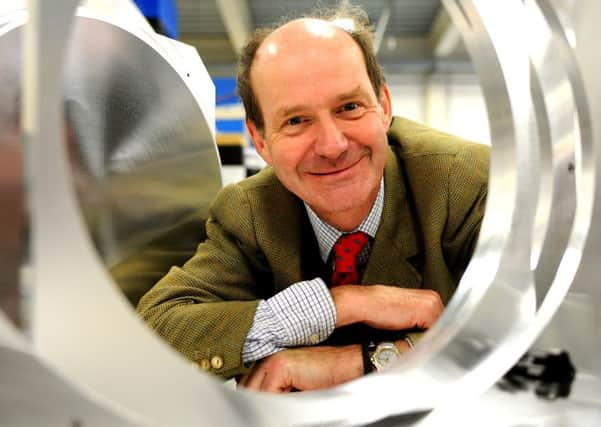From flea powder to satellites: Family firm takes on new challenge


Thomas Keating Ltd has been a family business for over 230 years and became famous for its flea powder which carried the slogan ‘Keatings Kills!’.
The company, based in Daux Road, will be creating parts for new satellites which will be used by the European Space Agency over the next few decades as part of a weather satellite programme.
Advertisement
Hide AdAdvertisement
Hide AdThomas Keating’s managing director Richard Wylde said the company had beaten some of Europe’s biggest names to win the contract including some governmental departments.
He said: “We are excited but daunted. This whole programme is going to cost, I think, a couple of billion euros. These satellites provide a significant fraction of the information needed for weather forecasting. Around 30 to 40 per cent of the information will come out of the satellites we are making.”
The company was first founded as a chemists in the 1780s.
In the 19th century it expanded and started to create and specialise in cough lozengers and Insecticides.
Richard explained the business had to adapt over the years to make sure it survived and has seen some radical changes. He said the business boomed as the flea powder became famous during the First World War.
Advertisement
Hide AdAdvertisement
Hide AdRichard said: “When health started to improve in the 1920s and 30s the flea powder business started to decline.
“We eventually stumbled into precision engineering during the Second World War.
“That business probably peaked in the mid 1970s but it became a declining business in the late 70s to early 80s.
“Over the last 35 years we have made the most of the craft skills we have had and have made it into a scientific engineering business.”
Advertisement
Hide AdAdvertisement
Hide AdThe company employs around 40 members of staff, most of whom have worked with Richard for several years.
He said: “It is still a family business. Most of my colleagues would have worked for us for 25 years.”
But it is the challenge of this new project which has got Richard excited.
He said he and his team will be building three sets of satellites which are designed to last around seven years.
Advertisement
Hide AdAdvertisement
Hide AdHe said one of the most difficult challenges facing the team was trying to build a satellite which will survive 20 years in storage.
Richard continued: “We have to make sure these things last on the ground for 20 years.
“We are excited but it’s a big challenge for a business of this size. Normally we would run on three or four month work quotas some of which we may have to do in a week and others we may have to do in a year.
“We now have a quota which will last two or three years. We are honoured to have been chosen but we are under no illusion of how difficult this will be.”
Advertisement
Hide AdAdvertisement
Hide AdThe systems the company will be making for the satellites include the on board calibration targets for the Microwave sounder, the on board calibration targets for the ICE Cloud Imager and the Quasi-Optical Network of the Microwave sounder.
The Microwave sounder will use the frequency of microwave soundings to measure the temperature and the humidity in the atmosphere.
The ICE Cloud Imager will provide ice cloud and snowfall images.
The satellites are set to be launched in 2020.
Don’t miss out on all the latest breaking news where you live.
Advertisement
Hide AdAdvertisement
Hide AdHere are four ways you can be sure you’ll be amongst the first to know what’s going on.
1) Make our website your homepage at www.wscountytimes.co.uk
2) Like our Facebook page at www.facebook.com/wscountytimes
3) Follow us on Twitter @wscountytimes
4) Register with us by clicking on ‘sign in’ (top right corner). You can then receive our daily newsletter AND add your point of view to stories that you read here.
And do share with your family and friends - so they don’t miss out!
The County Times - always the first with your local news.
Be part of it.